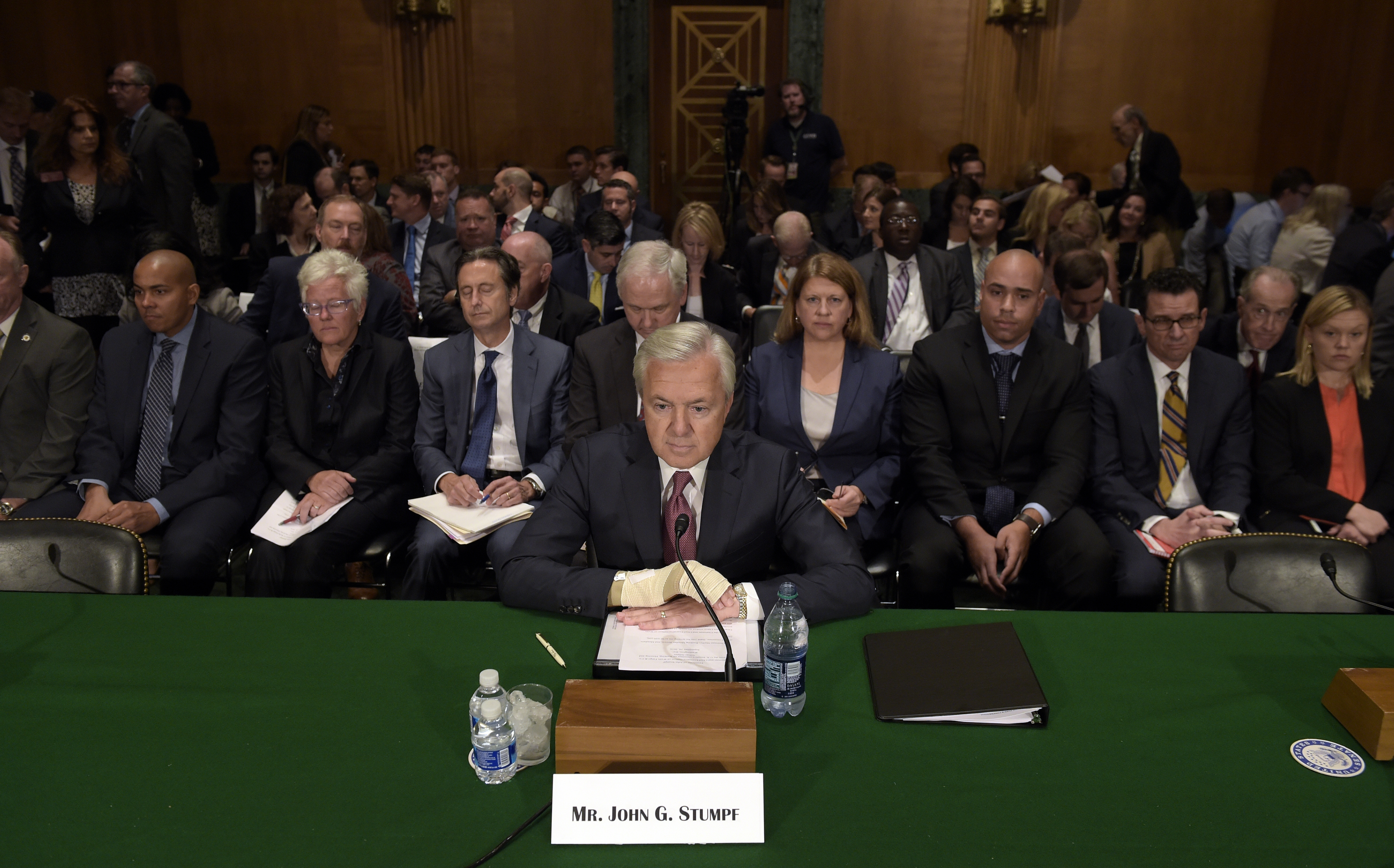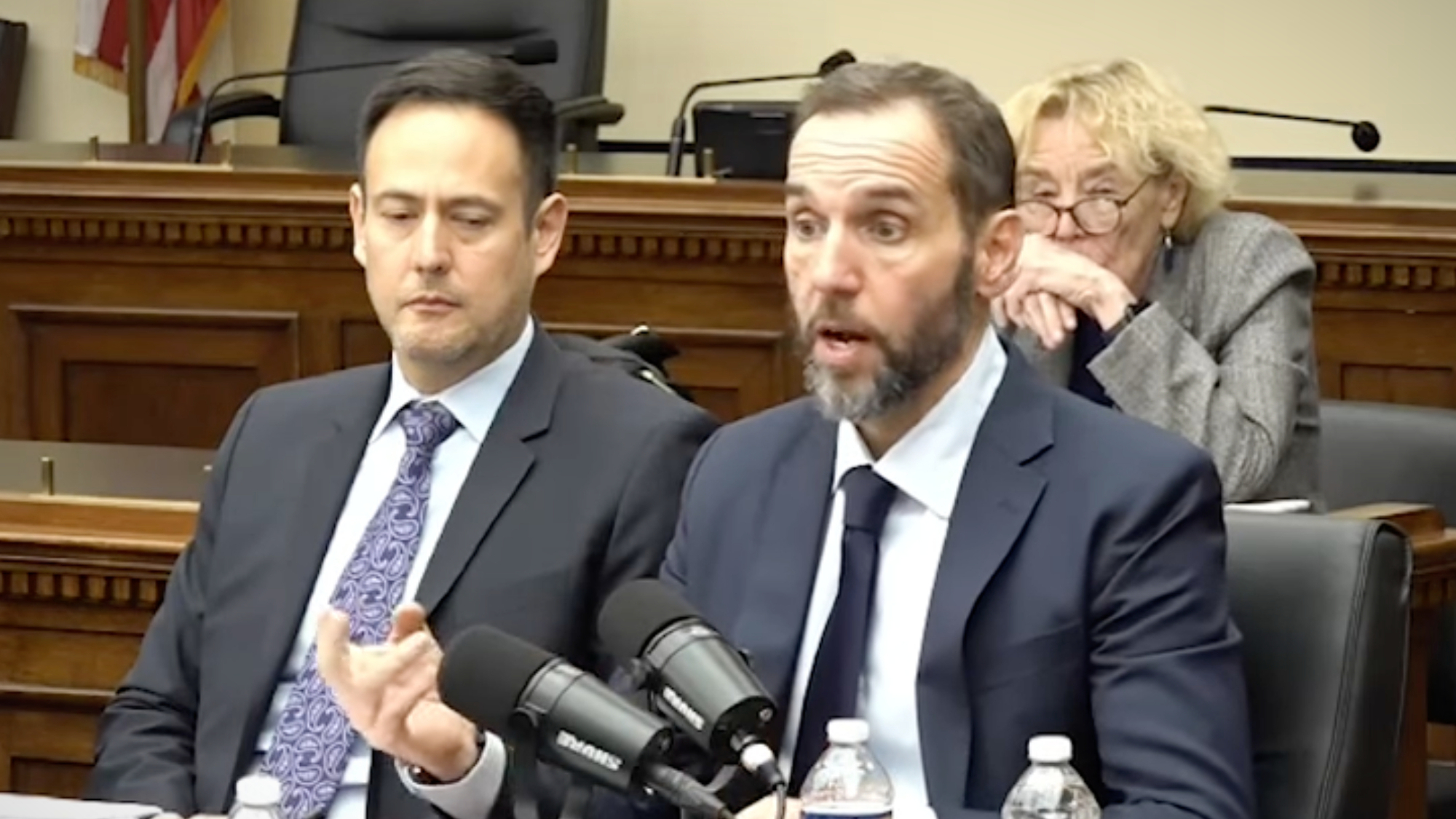What's next for Wells Fargo?
CEO John Stumpf was forced out within a week of his embarrassing appearances before congressional panels. What now?

The smartest insight and analysis, from all perspectives, rounded up from around the web:
Looks like "Wall Street got something right for once," said Tim Mullaney at MarketWatch. Wells Fargo CEO John Stumpf abruptly resigned last week, forced into retirement by devastating revelations that employees secretly created some 2 million fraudulent accounts in order to meet unrealistic sales quotas. The banking giant had already fired some 5,000 workers over the scandal, but as it became clear that the malfeasance was rooted deep in Wells' corporate culture, "accountability needed to be had at the top." Finally, a banking executive is taking the fall for his company's misdeeds, said Helaine Olen in Slate. Why is this time different? JPMorgan Chase's Jamie Dimon, for instance, still has his job despite the fact that lax oversight allowed rogue traders at his bank to lose more than $6 billion during the 2012 "London Whale" debacle. But while that scandal involved byzantine financial instruments like credit-default swaps, Wells' wrongdoing felt different, partly because it directly affected ordinary consumers. "It wasn't just that Wells Fargo expressed almost breathtaking contempt for its customers; it did it in a way they could easily understand."
Even with Stumpf gone, "the pain likely isn't over" for the bank, said Christina Rexrode at The Wall Street Journal. Federal prosecutors are still weighing civil and criminal charges against Wells for its aggressive sales practices, while several state attorneys general are conducting their own investigations. Stumpf himself was stripped of $41 million in compensation before he resigned, and could stand to lose more; other Wells executives could face pay clawbacks as well. Then there are looming class-action lawsuits from both employees and investors. But overall, Wells Fargo "is in decent condition," said The Economist staff. The bank weathered the financial crisis much better than its competitors, remains profitable, and has a strong balance sheet. Even so, Wells' scandal could not have come at a worse time — in the middle of an election season marked by populist fervor. In this environment, even scandals that would once have been regarded as minor can quickly "spiral out of control."
The Week
Escape your echo chamber. Get the facts behind the news, plus analysis from multiple perspectives.

Sign up for The Week's Free Newsletters
From our morning news briefing to a weekly Good News Newsletter, get the best of The Week delivered directly to your inbox.
From our morning news briefing to a weekly Good News Newsletter, get the best of The Week delivered directly to your inbox.
If only for PR purposes, "Wells Fargo needs to make a clean break with the past," said Gretchen Morgenson at The New York Times. So far, that doesn't appear to be happening. Timothy Sloan, the bank's president and former chief operating officer, is taking Stumpf's place as CEO. Shareholders can fairly ask, "Is Sloan, an almost 30-year veteran of Wells Fargo and a seasoned insider, the best executive to lead the bank out of crisis?" The answer is, probably not. Wells doesn't need small, incremental tweaks right now. It needs a "do-over to repair the damage." For now, though, let's celebrate this "all-too-rare example of corporate governance working the way it should," said James Stewart, also at the Times. Stumpf was forced out within a week of his embarrassing appearances before congressional panels, in which he laid blame for the scandal on low-level employees, instead of taking responsibility himself. "Ultimately the buck should stop with the chief executive — a simple truth that many boards often ignore." For once, "the buck stopped where it should have."
A free daily email with the biggest news stories of the day – and the best features from TheWeek.com
-
 The pros and cons of noncompete agreements
The pros and cons of noncompete agreementsThe Explainer The FTC wants to ban companies from binding their employees with noncompete agreements. Who would this benefit, and who would it hurt?
-
 What experts are saying about the economy's surprise contraction
What experts are saying about the economy's surprise contractionThe Explainer The sharpest opinions on the debate from around the web
-
 The death of cities was greatly exaggerated
The death of cities was greatly exaggeratedThe Explainer Why the pandemic predictions about urban flight were wrong
-
 The housing crisis is here
The housing crisis is hereThe Explainer As the pandemic takes its toll, renters face eviction even as buyers are bidding higher
-
 How to be an ally to marginalized coworkers
How to be an ally to marginalized coworkersThe Explainer Show up for your colleagues by showing that you see them and their struggles
-
 What the stock market knows
What the stock market knowsThe Explainer Publicly traded companies are going to wallop small businesses
-
 Can the government save small businesses?
Can the government save small businesses?The Explainer Many are fighting for a fair share of the coronavirus rescue package
-
 How the oil crash could turn into a much bigger economic shock
How the oil crash could turn into a much bigger economic shockThe Explainer This could be a huge problem for the entire economy


